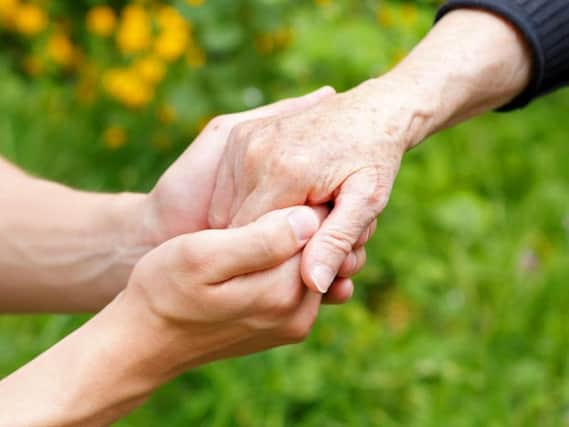Unpaid carers face cash crisis


As well as providing significant levels of care themselves, more than two thirds of carers are also using their own income or savings to cover the cost of care, equipment or products for the person they care for.
As a result many are struggling financially and unable to save for their own retirement.
Advertisement
Hide AdAdvertisement
Hide AdA survey of over 7,500 people currently caring unpaid for family or friends, the majority of whom provide well over 50 hours of care every week, reveals the huge personal and financial cost of caring for a loved one, with two in five carers saying they are struggling to make ends meet.
Those who take on caring responsibilities often struggle to juggle a job as well, with many reducing hours, turning down promotions or leaving work altogether. The financial pressure on carers is having a knock on effect on their futures, with over half who haven’t yet retired left unable to prepare for the future. More than half of all carers are unable to save for retirement.
Those struggling to make ends meet are the hardest hit as carers with little money to spare are forking out hundreds of pounds to cover the costs of essentials.
The vast majority of carers who report they struggle financially are paying towards the cost of care services or equipment for the person they support. For those on a low income or receiving Carer’s Allowance – the benefit for people caring for more than 35 hours a week and just £66.15 per week – it is a never ending struggle to make ends meet.
Advertisement
Hide AdAdvertisement
Hide AdThree quarters (73%) of this group are unable to save for retirement. On top of the huge personal cost of care, crucial support is being cut with one in eight carers reporting that they or their loved one received less care or support in the previous year, as a result of reduced support from social services.